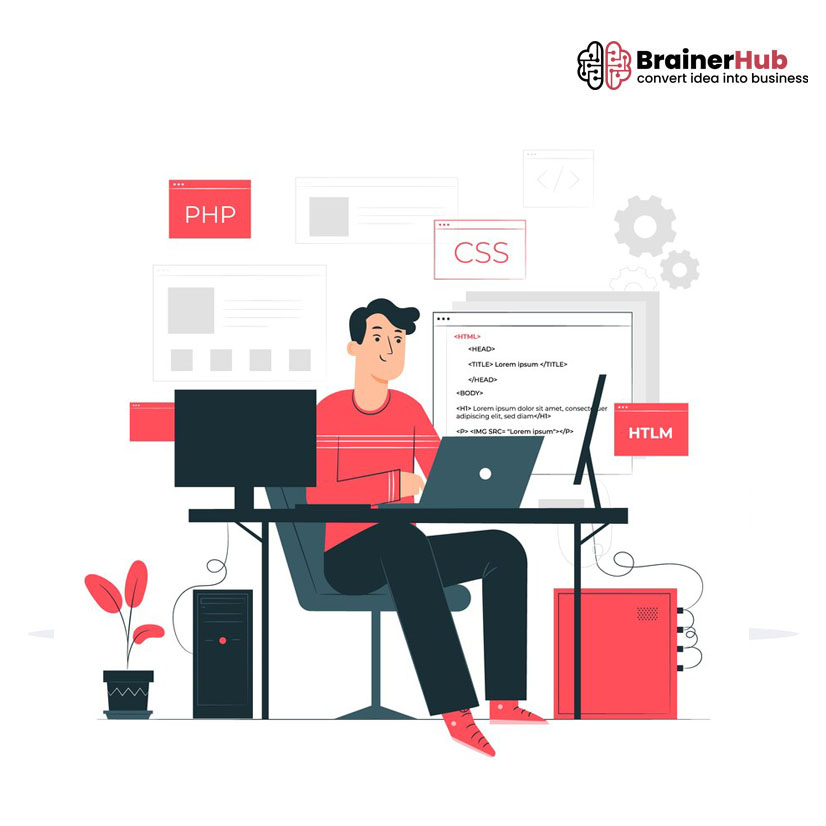In today’s fast-paced, data-driven world, businesses are increasingly turning to Artificial Intelligence (AI) & Machine learning (ML) to gain a competitive edge. Enterprise AI, which refers to the integration of AI technologies into the core business processes of large organizations, is no longer just an option—it’s a necessity. Here’s an in-depth look at why Enterprise AI is essential for modern businesses, covering its benefits, applications, challenges, and future prospects.
1. The Growing Importance of Data and Analytics
Data is often referred to as the “new oil” in the digital age. Companies generate vast amounts of data daily, from customer interactions and transactions to supply chain operations and social media activity. However, the real value of this data lies in how effectively it can be analyzed and used to inform decision-making.
- Enhanced Decision-Making: Enterprise AI can process and analyze large volumes of data at unprecedented speeds, providing insights that would be impossible for humans to achieve alone. This allows businesses to make more informed, data-driven decisions, improving efficiency and effectiveness across all areas of the organization.
- Predictive Analytics: AI-driven predictive analytics help businesses forecast future trends, customer behaviors, and market shifts. By analyzing historical data, AI models can identify patterns and predict outcomes, enabling proactive strategies and reducing the risk of costly mistakes.
- Real-Time Insights: AI systems can analyze data in real-time, allowing businesses to respond to changing conditions immediately. This is particularly important in industries like finance, where timely decision-making can significantly impact profitability.
2. Automation and Efficiency Gains
One of the most significant benefits of Enterprise AI is its ability to automate routine tasks and processes, freeing up human workers to focus on more complex and strategic activities.
- Process Automation: AI-driven automation can streamline operations by handling repetitive tasks such as data entry, invoice processing, and customer support. Robotic Process Automation (RPA), powered by AI, can automate rule-based tasks across various systems, reducing errors and increasing efficiency.
- Operational Efficiency: AI can optimize business processes by identifying inefficiencies and suggesting improvements. For example, AI algorithms can optimize supply chains by predicting demand, managing inventory levels, and identifying the best routes for distribution. This leads to cost savings, reduced waste, and faster time-to-market.
- Customer Support: AI-powered chatbots and virtual assistants provide 24/7 customer support, handling common inquiries and issues without human intervention. This not only improves customer satisfaction but also reduces the workload on customer service teams.
3. Personalization and Customer Experience
In an era where customer experience is a key differentiator, businesses must leverage AI to deliver personalized experiences that meet individual customer needs and preferences.
- Personalized Marketing: AI enables hyper-personalized marketing by analyzing customer data, including browsing history, purchase behavior, and social media activity. This allows businesses to tailor their marketing efforts, offering personalized recommendations, targeted ads, and customized content that resonates with each customer.
- Customer Segmentation: AI can segment customers into distinct groups based on various attributes, such as demographics, purchase history, and engagement levels. This segmentation allows businesses to target specific customer groups with tailored offers and communications, improving conversion rates and customer loyalty.
- Enhanced Customer Interaction: AI-driven tools like Natural language processing (NLP) and sentiment analysis help businesses understand customer feedback and sentiment. This allows for more meaningful interactions and the ability to address customer concerns proactively.
4. Innovation and Competitive Advantage
Incorporating AI into the core of business operations can drive innovation and provide a significant competitive advantage.
- Product and Service Innovation: AI enables businesses to innovate by uncovering new product ideas, optimizing existing offerings, and even predicting market demand. AI can analyze customer feedback, monitor competitor activities, and identify market trends, helping businesses stay ahead of the curve.
- Faster Time-to-Market: AI accelerates the product development cycle by automating research, design, and testing processes. This allows businesses to bring new products and services to market faster, meeting customer demands more quickly and effectively.
- Data-Driven Strategies: Companies that leverage AI for strategic decision-making can outperform competitors who rely on traditional methods. AI provides insights that drive better product development, marketing strategies, and operational efficiencies, giving businesses a clear edge in their industries.
5. Risk Management and Security
In today’s interconnected world, businesses face numerous risks, from cyber threats to financial fraud. Enterprise AI plays a critical role in managing and mitigating these risks.
- Fraud Detection: AI algorithms can detect patterns and anomalies in transactions that may indicate fraudulent activity. By continuously monitoring financial transactions, AI systems can identify and flag suspicious behavior in real-time, preventing fraud before it occurs.
- Cybersecurity: AI enhances cybersecurity by analyzing network traffic, identifying vulnerabilities, and detecting potential threats. Machine learning models can recognize unusual patterns that may indicate a cyberattack, enabling businesses to respond quickly and minimize damage.
- Risk Assessment: AI can assess various types of risks, from financial to operational, by analyzing historical data and current conditions. This allows businesses to make informed decisions about investments, partnerships, and other critical business activities, reducing the likelihood of negative outcomes.
6. Scalability and Flexibility
As businesses grow, they need systems that can scale and adapt to changing needs. Enterprise AI provides the scalability and flexibility required to support business expansion.
- Scalable Solutions: AI systems can handle increasing amounts of data and workloads without compromising performance. This scalability is essential for businesses that anticipate growth or experience seasonal fluctuations in demand.
- Flexible Applications: AI can be applied across various business functions, from sales and marketing to HR and finance. This flexibility allows businesses to implement AI where it is most needed, adapting to changing market conditions and organizational priorities.
- Cloud-Based AI: The rise of cloud computing has made AI more accessible and scalable for businesses of all sizes. Cloud-based AI solutions allow businesses to leverage powerful AI tools without the need for significant upfront investment in infrastructure.
7. Challenges and Considerations
While the benefits of Enterprise AI are substantial, businesses must also navigate certain challenges and considerations when implementing AI.
- Data Privacy and Compliance: With increasing regulations around data privacy (such as GDPR), businesses must ensure that their AI systems comply with legal requirements. This involves implementing robust data governance practices and ensuring transparency in AI decision-making processes.
- Ethical AI: Businesses must consider the ethical implications of AI, including issues of bias, fairness, and accountability. Developing and deploying AI responsibly is critical to maintaining trust with customers, employees, and stakeholders.
- Skill Gaps and Talent: Implementing AI requires specialized skills in data science, machine learning, and AI engineering. Businesses must invest in training and development or seek external partnerships to bridge these skill gaps.
- Cost and ROI: While AI offers significant benefits, the initial investment in AI technology and infrastructure can be substantial. Businesses must carefully evaluate the expected return on investment (ROI) and ensure that AI initiatives align with overall business goals.
8. The Future of Enterprise AI
As AI technology continues to evolve, its impact on businesses will only grow. The future of Enterprise AI holds exciting possibilities:
- AI-Driven Decision-Making: In the future, AI may take on an even more prominent role in decision-making, providing real-time recommendations and automating complex business processes.
- Advanced AI Applications: Emerging AI technologies, such as deep learning, reinforcement learning, and AI-driven robotics, will open new opportunities for innovation and efficiency.
- AI and IoT Integration: The integration of AI with the Internet of Things (IoT) will enable businesses to harness the power of connected devices, driving smarter operations and enhanced customer experiences.
- AI as a Service (AIaaS): The rise of AIaaS will make AI more accessible to businesses of all sizes, allowing even small and medium-sized enterprises to leverage AI’s capabilities without significant upfront costs.
Conclusion
Enterprise AI is no longer a luxury for modern businesses—it’s a must-have. From enhancing decision-making and automating processes to driving innovation and managing risks, AI offers a myriad of benefits that are critical for success in today’s competitive landscape. By investing in AI and integrating it into their core operations, businesses can unlock new opportunities, stay ahead of the competition, and build a sustainable, future-ready organization. As AI continues to evolve, its importance in the business world will only increase, making it essential for companies to embrace this transformative technology.








